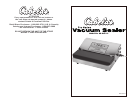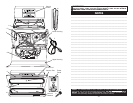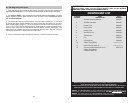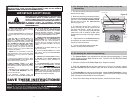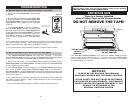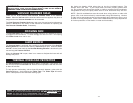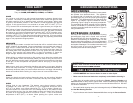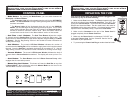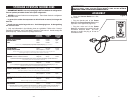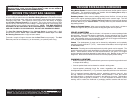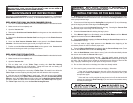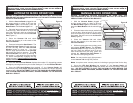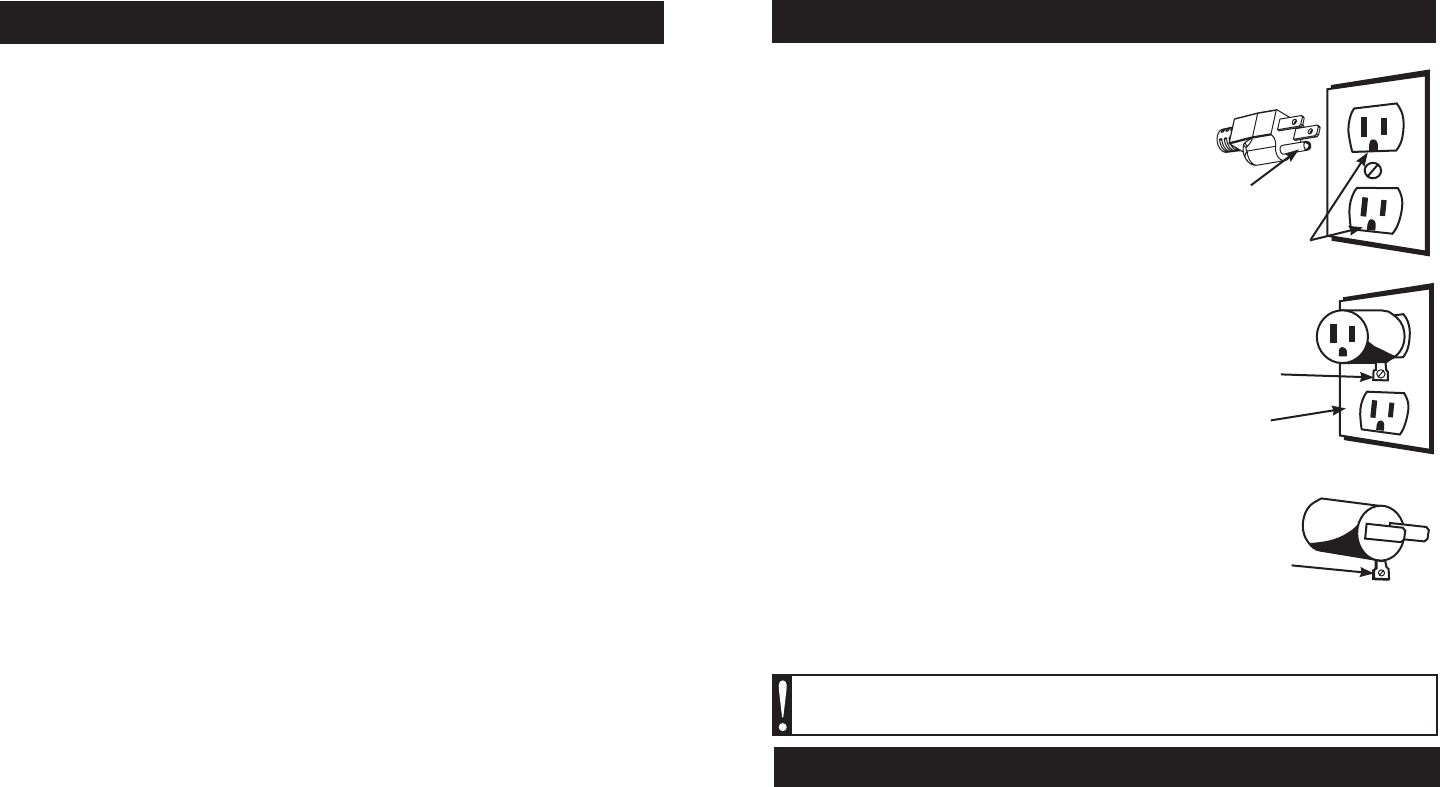
-7-
CARE & CLEANING INSTRUCTIONS
WARNING! Before cleaning, assembling or disassembling the Vacuum
Sealer, make sure the Vacuum Sealer is OFF and the PLUG IS REMOVED
FROM THE OUTLET/POWER SOURCE!
GROUNDING
This appliance must be grounded while in use to protect
the operator from electrical shock. The appliance
is equipped with a 3-conductor cord and a 3-prong
grounding type plug to t the proper grounding-type
receptacle. The appliance has a plug that looks like
Figure A. An adaptor, Figure B, should be used for
connecting Figure A plugs to two-prong receptacles.
The grounding tab which extends from the adaptor
must be connected to a permanent ground such as
a properly grounded outlet box as shown in Figure C
using a metal screw.
EXTENSION CORDS
Use only 3-wire extension cords which have 3-prong
grounding-type plugs and a 3-pole cord connector
that accepts the plug from the appliance. Use only
extension cords having an electrical rating not less
than the rating of the appliance. Do not use damaged
extension cords. Examine extension cord before using
and replace if damaged. Do not abuse extension cord
and do not yank on any cord to disconnect. Keep
cord away from heat and sharp edges.
Figure A
Figure B
Figure C
Circuit
Grounding
Conductor
Grounding
Prong
Metal
Grounding
Screw
Cover of
Grounded
Outlet Box
Grounding
Means
AA2220
GROUNDING INSTRUCTIONS
.
NEVER IMMERSE the Vacuum Sealer in water or other liquid.
.
Make sure the Vacuum Sealer has completely cooled before cleaning it.
.
Wipe clean all outside surfaces including the Plastic Vacuum Chamber and
Vacuum Lid with a damp cloth or paper towel.
Most household spray cleaners are
safe to use. Avoid spraying directly into the vent on the left side of the unit. DO NOT
use abrasive cleansers!
.
Be careful while cleaning not to peel or damage the strip of Teon Tape covering
the Seal Bar Heating Element.
.
Dry all surfaces and close the Vacuum Lid before storing the Vacuum Sealer.
-18-
There are basic rules to follow when handling food.
They are COOK, SEPARATE, CLEAN, and CHILL.
COOK
It’s crucial to cook food to a safe internal temperature to destroy bacteria that
is present. The safety of hamburgers and other foods made with ground meat
has been receiving a lot of attention lately, and with good reason. When meat
is ground, the bacteria present on the surface is mixed throughout the ground
mixture. If this ground meat is not cooked to at least 160
o
F to 165
o
F (71
o
C to
74
o
C), bacteria will not be destroyed and there’s a good chance you will get sick.
Solid pieces of meat like steaks and chops don’t have dangerous bacteria like
E. coli on the inside, so they can be served more rare. Still, any beef cut should
be cooked to an internal temperature of at least 145
o
F (63
o
C) (medium rare).
The safe temperature for poultry is 180
o
F (82
o
C) and solid cuts of pork should be
cooked to 160
o
F (71
o
C). Eggs should be thoroughly cooked too. If you are making
a meringue or other recipe that uses uncooked eggs, buy specially pasteurized
eggs or use prepared meringue powder.
SEPARATE
Foods that will be eaten uncooked and foods that will be cooked before eating
MUST ALWAYS be separated. Cross-contamination occurs when raw meats or
eggs come in contact with foods that will be eaten uncooked. This is a major
source of food poisoning. Always double-wrap raw meats and place them on
the lowest shelf in the refrigerator so there is no way juices can drip onto fresh
produce. Then use the raw meats within 1-2 days of purchase, or freeze for
longer storage. Defrost frozen meats in the refrigerator, not on the counter.
When grilling or cooking raw meats or sh, make sure to place the cooked meat
on a clean platter. Don’t use the same platter you used to carry the food out to
the grill. Wash the utensils used in grilling after the food is turned for the last time
on the grill, as well as spatulas and spoons used for stir-frying or turning meat
as it cooks.
Make sure to wash your hands after handling raw meats or raw eggs. Washing
hands with soap and water, or using a pre-moistened antibacterial towelette is
absolutely necessary after you have touched raw meat or raw eggs. Not washing
hands and surfaces while cooking is a major cause of cross-contamination.
CLEAN
Wash your hands and work surfaces frequently when you are cooking. Washing
with soap and warm water for at least 15 seconds, then dry with a paper towel.
CHILL
Chilling food is very important. The danger zone where bacteria multiply
is between 40
o
F and 140
o
F (4
o
C and 6
o
C). Your refrigerator should be set to
40
o
F (4
o
C) or below; your freezer should be 0
o
F (-17
o
C) or below. Simple rule:
serve hot foods hot, cold foods cold. Use chang dishes or hot plates to keep
food hot while serving. Use ice water baths to keep cold foods cold. Never let
any food sit at room temperature for more than 2 hours - 1 hour if the ambient
temperature is 90
o
F (32
o
C) or above. When packing for a picnic, make sure
FOOD SAFETY



